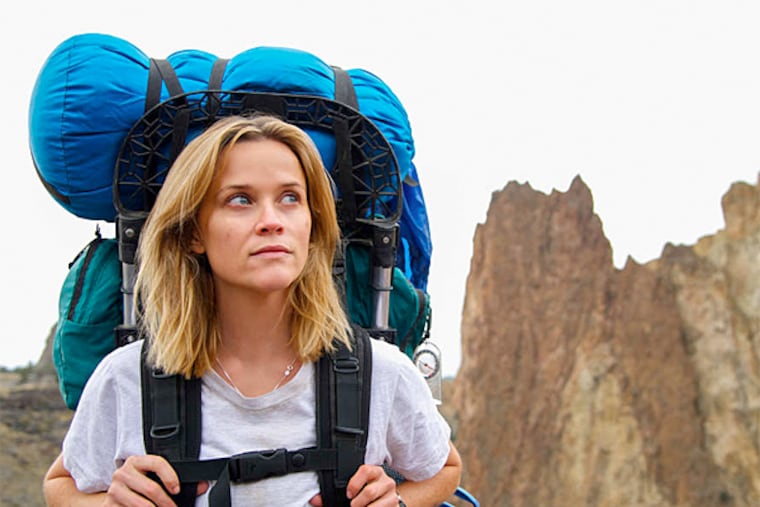Reese Witherspoon shines in 'Wild'
Reese Witherspoon plays a self-destructive woman on a journey of healing as she hikes through California.

DON'T GO TO "Wild" expecting an adventure about a woman alone in the wilderness, because she's often not alone and it's not really a wilderness.
This adaptation of the popular memoir by Cheryl Strayed (played by Reese Witherspoon) occurs along the Pacific Crest Trail in a fairly well-mapped, well-traveled part of California, so Strayed is rarely more than a day's walk from a Snapple and a bag of chips.
She hitchhikes around detours, gets hot meals from friendly strangers, receives care packages at regular intervals, has plenty of company along the way and is awarded a free pair of boots when her feet hurt.
In fact, life on the trail is pretty awesome. The wilderness that bedevils Strayed is internal, and prompted by the abject grief she feels at losing her mother (Laura Dern), an event that sends Strayed tumbling through a busted marriage, family estrangement, masochistic promiscuity and drug abuse.
As she falls, she grabs for anything, and her hand happens to latch onto a guidebook describing the trail, leading to her impulsive decision to drop everything (which isn't much) and hike her way across California - the long way, south to north, starting in the Mojave and ending in Oregon.
Her vow, and Strayed's money line: to keep walking until she becomes the woman her mother raised her to be.
It's a nice change-of-pace role for Witherspoon, cinema's most ruthlessly efficient and with-it blonde since "Election."
Here she plays the sort of self-destructive collection of impulses that men usually play - ducking into an alley to have sex, snorting heroin because only an idiot would inject it, then injecting it.
For Strayed, the pared-down focus of life on the trail points to a destination of clarity and peace. Getting there is a process of attrition, of learning to live with less and less and still less.
Amusing early scenes feature tiny Witherspoon (she makes a winning joke of her size and of Strayed's tenderfoot hubris) trying to stand with her massive, overstuffed backpack, unable to stand, struggling to her feet like a flipped-over turtle. On her journey of a thousand miles, she learns to jettison what's not important, and the implications of that are fairly plain.
Strayed is also dragging painful memories that she learns to unpack - we see them as brief, staccato flashbacks (in the style that Jean-Marc Vallee employed in his last movie, "Dallas Buyers Club").
The movie has a harder time revealing to us the grand epiphany that arises from this process of psychic healing - in the end, the movie has no choice but to place Witherspoon on a bridge as she reads, via voiceover, the last graphs from Strayed's book.
It's less interesting than what happens along the way - "Wild" has appeal as a piece of Americana, an account of out-of-the-way places and people, who are in aggregate kinder to Strayed than she is to herself.
She's buoyed by encounters with a farmer, a way-station operator, a fellow wanderer. By the time a child's rendition of an old folk song brings Strayed to her knees, the open arms of the trail and its people have welcomed her back to the world.